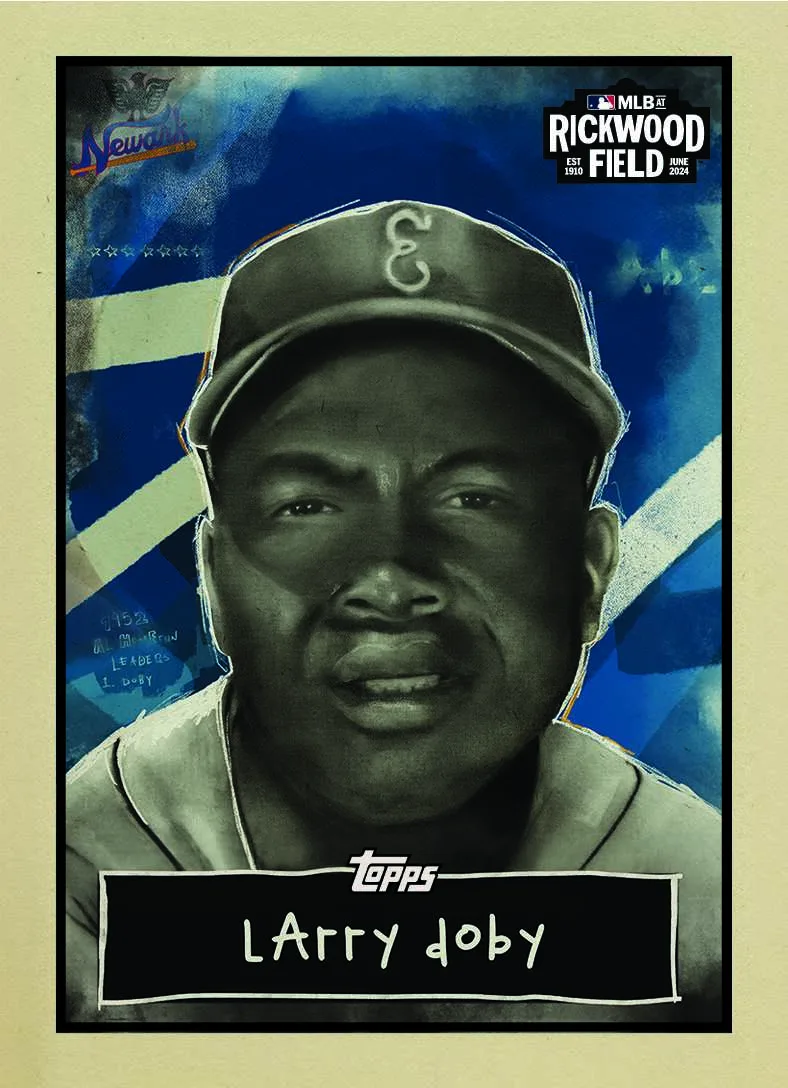
Life, Times, and Cardboard of Larry Doby
When Larry Doby debuted with the Cleveland Indians in 1947, breaking the so-called “color barrier” in the American League just a few weeks after Jackie Robinson had done the same in the National League, Doby was jumping into waters no less stormy than those braved by Robinson.

1949 Bowman card #233 Larry Doby
Doby was almost five years younger than Robinson, and the intense media scrutiny, the icy reception, even from his teammates, and the pressure to succeed seemed to overwhelm Doby – at first. Robinson and Doby communicated by telephone throughout the season, and the men agreed to maintain a businesslike, conflict-avoidant attitude while on the field. Doby was later quoted saying, “We figured that if we spoke out, we would ruin things for other black players.” Starting in only one game in 1947, Doby struggled to find his place, and in 29 games, he posted a .156 average.
But from the outset, Larry Doby understood the power of optimism. After an off-season in which he became the first black player to appear in the American Basketball League (with the Paterson Crescents), Doby, now playing alongside Satchel Paige and Minnie Miñoso, experienced his first spring training with Cleveland. In 1948, Doby played in 121 games and posted a .301 average with 14 HR. The following year, he made his first All-Star appearance.
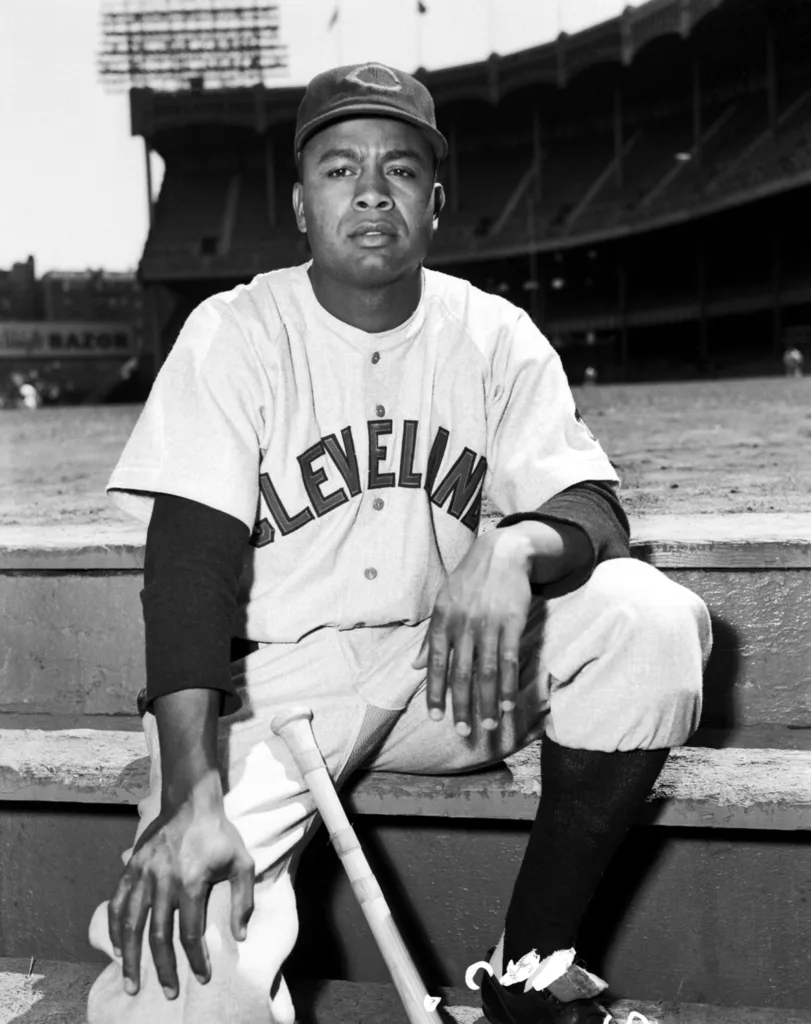
(Photo by Kidwiler Collection/Diamond Images/Getty Images)
Bowman’s Larry Doby Cards
Doby’s quick and remarkable turnaround meant that by the time the golden age of baseball cards was underway, he was a valuable player, even aside from the cultural importance of his breaking the color line. The 1949 Bowman set, which also included cards for Jackie Robinson and Satchel Paige, includes Doby’s rookie card (#233).
Bowman’s 1950 follow-up card for Doby is especially striking, as it features the left-handed hitter waiting on a pitch with a detailed audience cheering in the background. The back of that card (#39) notes that Doby “is one of the few Negroes in the American League, and is one of its best players.”
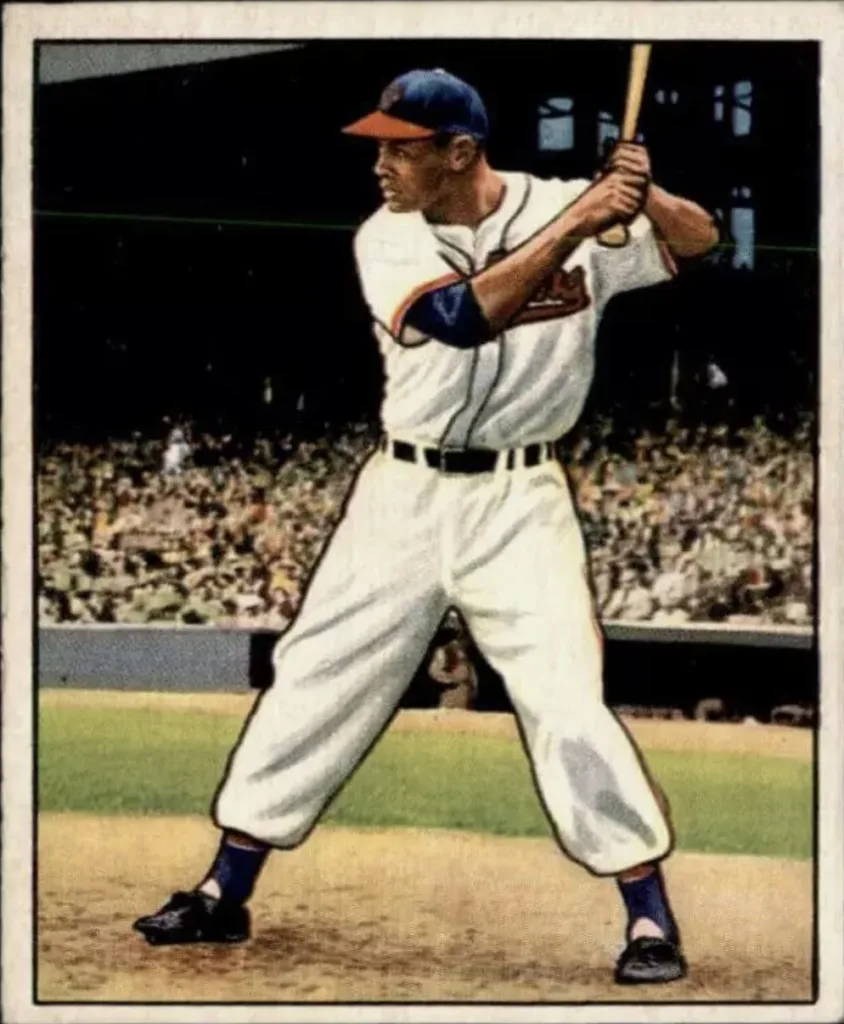
1950 Bowman #39 Larry Doby
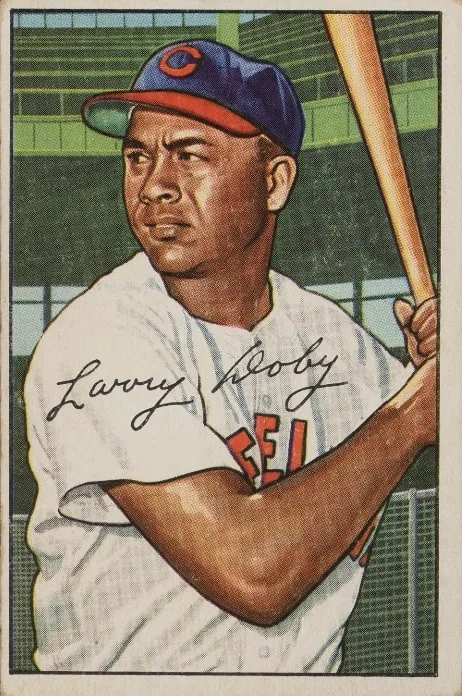
1953 Bowman #115 Larry Doby
The 1952 Bowman card (#115) is another standout for Doby collectors, as it features a replica signature and colorful close-up artistic likeness. The 1953 (#40) and 1954 (#84) Bowman cards feature color photographs of Doby, and the ’54 card notes that he had no opportunity to play in the minors with Cleveland but came straight to the MLB from the Negro Leagues.
Larry Doby, Topps, and the Modern Game
Doby’s 1952 Topps card (#243) isn’t technically his Topps debut, as he was included in the obscure 1951 Topps Major League All-Star die-cut set during the previous season, but it is the card Topps partisans typically focus on as Doby’s most prized card. The card summarizes Doby’s standout 1948 World Series performance and features his signature under the artistic reproduction of his image.
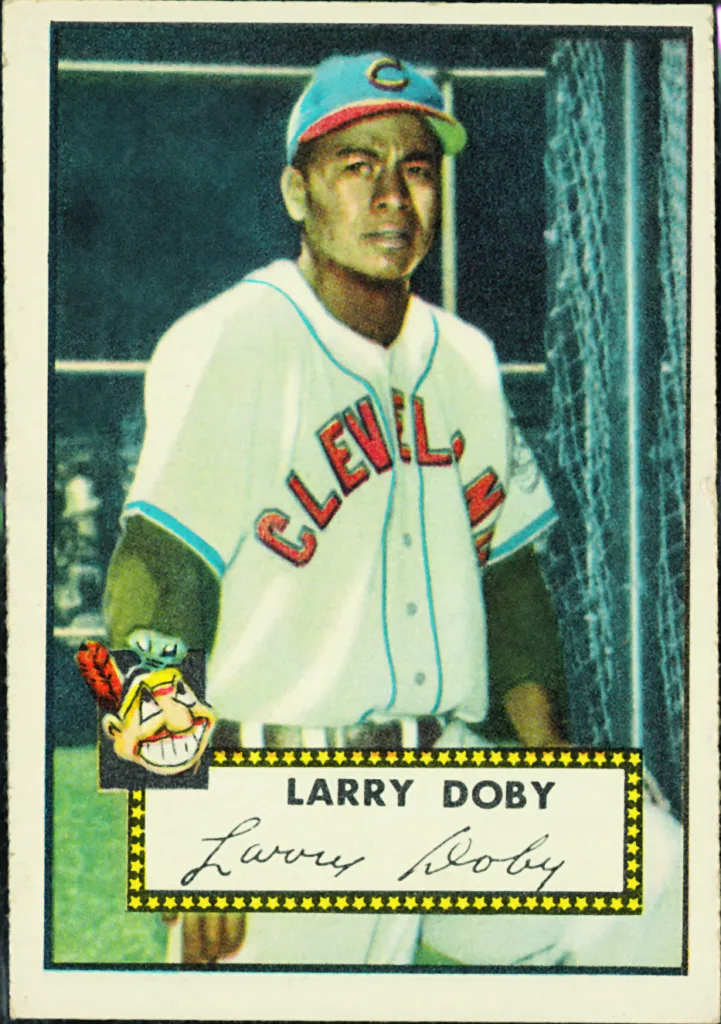
1952 Topps Baseball #243 Larry Doby
Doby did not retire until 1959 and was included in the Topps sets in 1954 and 1956-59. His 1956 card notes that he led the American League in HR in 1952 and 1954. Over the course of his career, Doby was a 9-time All-Star and a two-time World Series champion. He went on to establish a significant career as a coach, and in 1978, with the White Sox, he became the second black manager in the MLB after Frank Robinson. He appears in the 1973 and 1974 Topps sets as a coach.
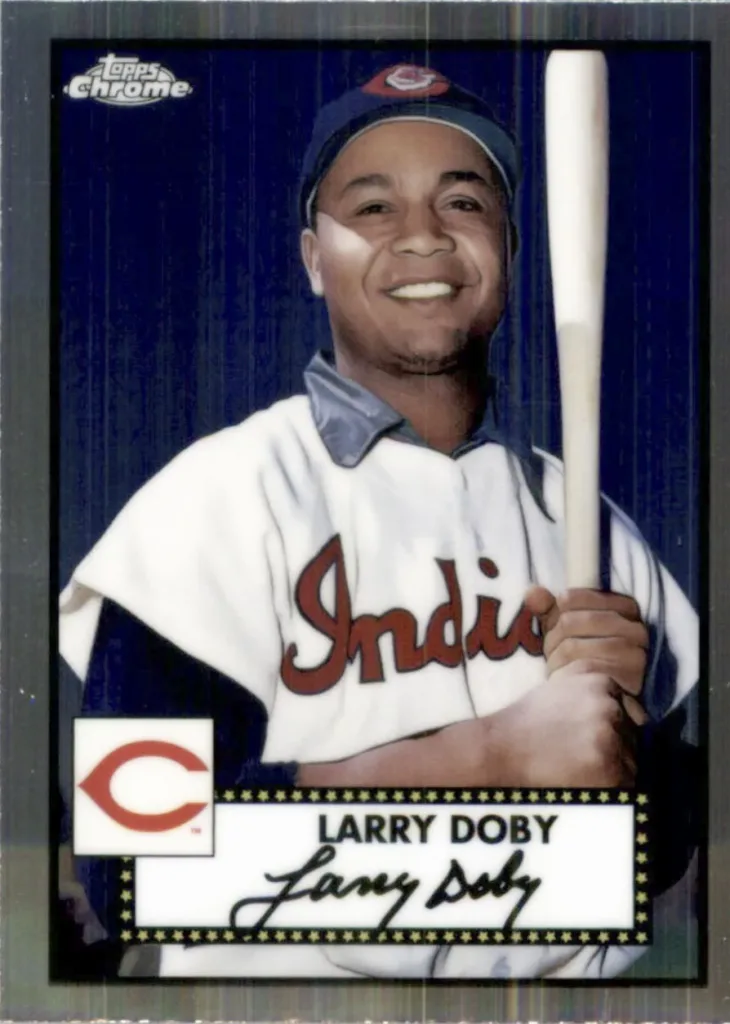
2021 Topps Chrome Platinum Anniversary #634 Larry Doby
More recently, Doby has appeared on several impressive retro cards, including the 2021 Topps Chrome Platinum Anniversary (#634), which uses the 1952 layout with a new image of Doby. In 2022, Allen & Ginter released a Doby card that honors him as a world champion.
Larry Doby: On His Own Terms
This year, the trailblazing career of Larry Doby will be honored in the six-card Topps Rickwood Field collection alongside Satchel Paige, Jackie Robinson, Willie Mays, Monte Irvin, and Josh Gibson. What began as a battle against bigotry and prejudice concluded with Doby’s induction into the Hall of Fame in 1998, five years before he passed away.
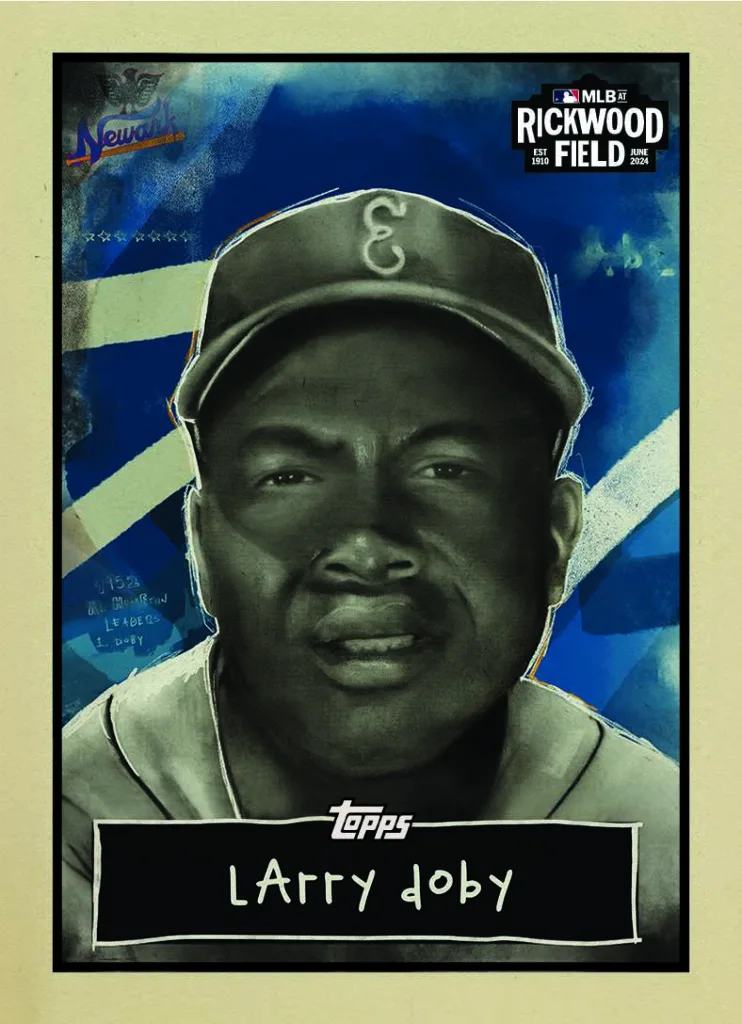
After their careers had ended, Cleveland teammate Bob Feller compared Doby to Buzz Aldrin, the often-overlooked second man to set foot on the moon. Remarkably, like Doby, Buzz Aldrin also spent a good portion of his life in Montclair, New Jersey. But the truth is, despite the coincidence of circumstances, it’s an imperfect comparison. Doby had faced an entirely different set of obstacles, and his composure and achievements deserve to be honored on their own terms.
Later in his life, Doby gained a reputation for quiet wisdom that was likely gained, as it so often is, through difficult experiences. He said, “Never underestimate the power of a positive mindset. It can turn obstacles into opportunities.” It hardly needs saying that his career—both as a player and as a coach, but also as a cultural change agent—stands as sufficient proof that this wisdom is true.